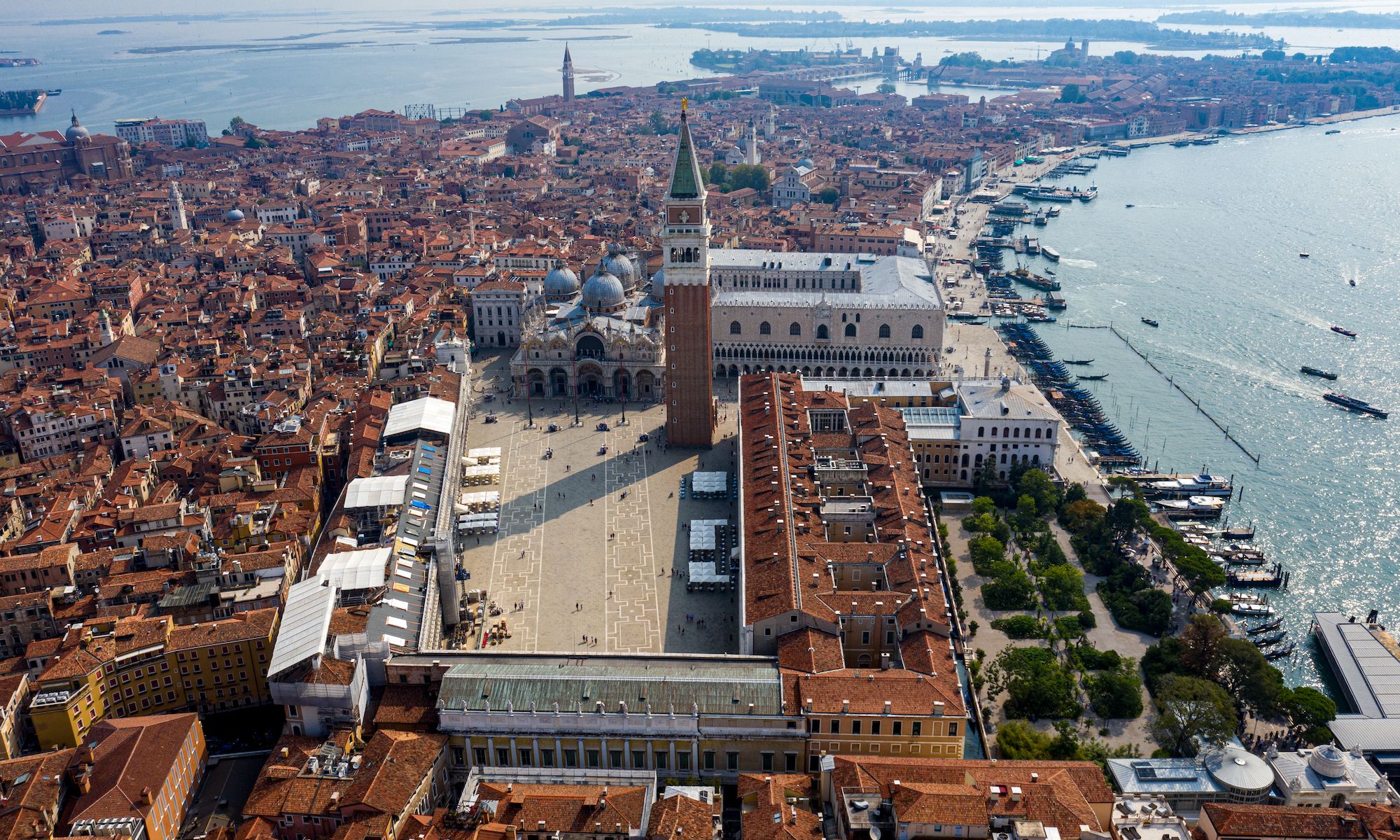Aerial view of Venice, where the Republic of Benin will stage its first Venice Biennale pavilion in 2024 Photo by Kasa Fue, via Wikimedia Commons
The Republic of Benin will have a national pavilion at the Venice Biennale for the first time ever next year, joining the small but growing presence of African nations at the world’s longest-running contemporary art exhibition. Azu Nwagbogu, founder and director of the Lagos-based non-profit African Artists’ Foundation (AAF), will curate the inaugural display, according to the announcement on Monday (13 March) by the government of the West African country.
Born in Lagos, Nwagbogu is known for his critical advocacy of African art, particularly photography, and his work to reimagine museums to better serve their localities. After founding AAF in 2007, a non-profit that supports contemporary artists and arts programming in Africa, he helped launch the LagosPhoto photography festival in 2010. In 2018 and 2019, he served as director of the Zeitz Museum of Contemporary Art Africa in Cape Town, where he co-organized exhibitions including a major show on Zimbabwean contemporary painters. He was appointed to lead the organisation of Benin’s pavilion at the Venice Biennale by a joint selection committee made up of members of the National Gallery of Benin as well as the minister of tourism, culture and arts, and headed by the country’s president, Patrice Talon.
“We are delighted to have Azu Nwagbogu as the curator of the Bénin National Pavilion,” Talon said in a statement. “His unique background, vision and expertise in the field of art curation makes him the perfect candidate to showcase Bénin’s cultural heritage and contemporary art to the world.”
Curator Azu Nwagbogu, who will organise Benin's first presentation at the Venice Biennale, in 2024 Courtesy Azu Nwagbogu
The country’s participation in the Biennial is part of the government’s broader policy aims to engage in greater cultural diplomacy. Talon has made the restitution of looted art from Benin a priority since his 2016 election, and in 2021 his government signed an agreement with France to receive 26 treasures stolen by the French military more than a century ago. In 2022, Talon’s office organised a highly popular travelling exhibition that put those objects on view alongside works by contemporary Beninise artists. Titled Benin Art from Yesterday to Today, from Restitution to Revelation, the show debuted at the presidential palace in Cotonou, where it drew crowds, and is on view at the Mohamed VI Museum of Modern and Contemporary Art in Rabat, Morocco, through May.
Nwagbogu has also been outspoken about restitution and repatriation, speaking about the topics at various panels and making it the theme of an issue of Art Africa that he guest-edited in 2020. In 2017, he also participated in a forum held during the Venice Biennale about the underrepresentation of African nations at the international art exhibition. That year, only seven African countries presented national pavilions. The number has slowly been increasing, with Ghana and Madagascar making their debuts in 2019, and Cameroon and Namibia unveiling inaugural pavilions in 2022.
Benin’s first pavilion will be commissioned by José Pliya, a playwright who serves as the general director of La Galerie Nationale du Bénin. The curatorial team will also include the gallery’s curator Yassine Lassissi, who helped organise the contemporary section of Benin Art from Yesterday, and the architect Franck Houndégla.

